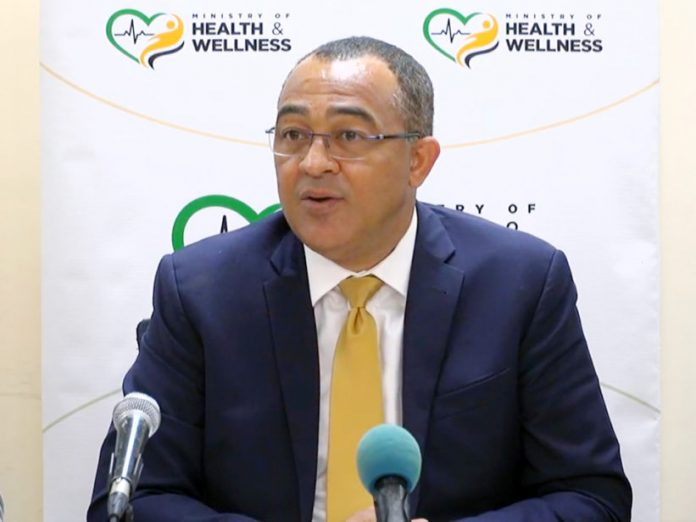
The crisis created by the novel coronavirus pandemic worsened locally yesterday as oxygen supplies fell critically low, leaving hospitals struggling to care for critically ill COVID-19 patients, some of whom have been placed in surgical wards and intensive care units due to the increasing number of cases in the country.
However, Peter Graham, managing director of IGL, the country’s sole producer of oxygen, says the island is scheduled to receive four shipments of oxygen this week, starting early tomorrow morning.
“We have a shipment scheduled to arrive Monday at 1:00 am from Trinidad,” Graham told the Jamaica Observer yesterday. “We have another coming out of the US on Monday evening, and two out of Costa Rica Tuesday.”

He said the Costa Rica shipments should have arrived before the weekend but were delayed because of bad weather.
The health and wellness ministry, and the Government in general, came under heavy flak as news about the oxygen shortage circulated after the ministry reported 835 new COVID-19 cases and 18 deaths in the 24 hours leading up to yesterday.
The ministry said that 17 of the deaths occurred between August 23 and 26. At the same time, the number of people hospitalised was 728. The new positive cases pushed the island’s overall COVID-19 count to 65,734 since the first case was reported last year March. Of that number, 1,483 people died from complications associated with the virus, while 48,028 have recovered.
Yesterday, the Opposition spokesman on health Dr Morais Guy urged the Government to immediately reach out to the United States and Canada for emergency supplies of oxygen to be airlifted to Jamaica to alleviate the critical shortage affecting the hospital system.
Stating that most hospitals had either run dangerously low or were out of oxygen, Dr Guy said “The hospitals are in a crisis as COVID-19 and other emergency patients require oxygen.”
He said his information was that IGL has run out of supplies and shipments from Trinidad and Mexico were not expected until Monday. “With Hurricane Ida affecting the Gulf region, no chances should be taken, as there could be shipping disruptions. As a result, the Opposition wants the Government to use the diplomatic channel to make contact with a view to securing emergency supplies for the island,” Dr Guy said in a statement.
Graham, though, said his company was still producing oxygen. What was happening, he explained, was that the demand was exceeding IGL’s production capability.
“The daily demand is about two times what we produce, so we have to complement that by imports, and we’ve been doing that for some time. What has been happening is that because of the situation in other jurisdictions; for example, Florida, because of the hospitalisation and the high infection rate, they have said they can’t ship out of the country any more,” Graham told the Sunday Observer.
“We’ve had disruption in our imports, so we had to immediately find new suppliers, and we did,” he said.
The challenge we have is between now and 1:00 am Monday when our first shipment arrives from Trinidad… the only supply that is available to us now is what is coming off the production plant. So the country is not out of oxygen, what is happening is, what is required cannot fully satisfy the demand,” Graham said.
Earlier this month Graham had told the Observer that IGL would have been able to provide enough oxygen if demand rose to the level seen earlier this year when hospitalisations increased during the second wave of the virus.
At the time he said he had not yet received a full estimate of demand for oxygen from the health and wellness ministry. What he had was information from hospitals which had placed him in a position to say that “based on the peak hospitalisation level in March, which was 477 persons, we are better prepared if we get to those levels again”.
However, he had cautioned that if hospitalisations climbed above that number it would create a problem.
Graham had also explained that in 2018 IGL started laying the foundation to put itself in a much better position to meet demand by making significant investments in its production capacity.
That started with a medical oxygen-producing plant at the company’s headquarters at Ferry, St Catherine. The plant, he explained, produces about 13 tonnes of oxygen daily.
“At that time it was to eliminate or reduce significantly imports,” he said.
“Since the last week in March this year we did a number of things to better prepare for a potential third wave,” he said, explaining that among those measures was close to US$400,000 in investment in storage capacity at a number of the island’s hospitals.
Advertise with the mоѕt vіѕіtеd nеwѕ ѕіtе іn Antigua!
We offer fully customizable and flexible digital marketing packages.
Contact us at [email protected]













